Despite significant investments in AI, many organizations struggle to convert that potential into compelling business outcomes.
Only a third of AI practitioners feel equipped with the right tools, and deploying predictive AI apps takes an average of seven months—eight for generative AI. Even then, confidence in these solutions is often low, leaving organizations unable to fully capitalize on their AI investments.
By streamlining deployment and empowering teams, the right AI apps and agents can help businesses deliver predictive and generative AI use cases faster and with greater results.
What’s slowing your success with AI applications?
Data science and AI teams often face lengthy cycles, integration hurdles, and inefficient tools, making it difficult to deliver advanced use cases or integrate them into business systems.
Custom fixes may offer a fast workaround, but they often lack scalability, leaving businesses unable to fully unlock AI’s potential. The result? Missed opportunities, fragmented systems, and growing frustration.
To address these challenges, DataRobot’s AI apps and agents help streamline deployment, accelerate timelines, and simplify the delivery of advanced use cases, without the complexity of building from scratch.
AI apps and agents
Delivering impactful AI use cases can be faster and more efficient with custom AI solutions. Specifically, DataRobot’s new features provide:
- Streamlined deployment by reducing the need for extensive code rewrites.
- Pre-built templates for business logic, governance, and user experience to accelerate timelines.
- The ability to tailor approaches to meet your unique organizational needs, ensuring meaningful results.
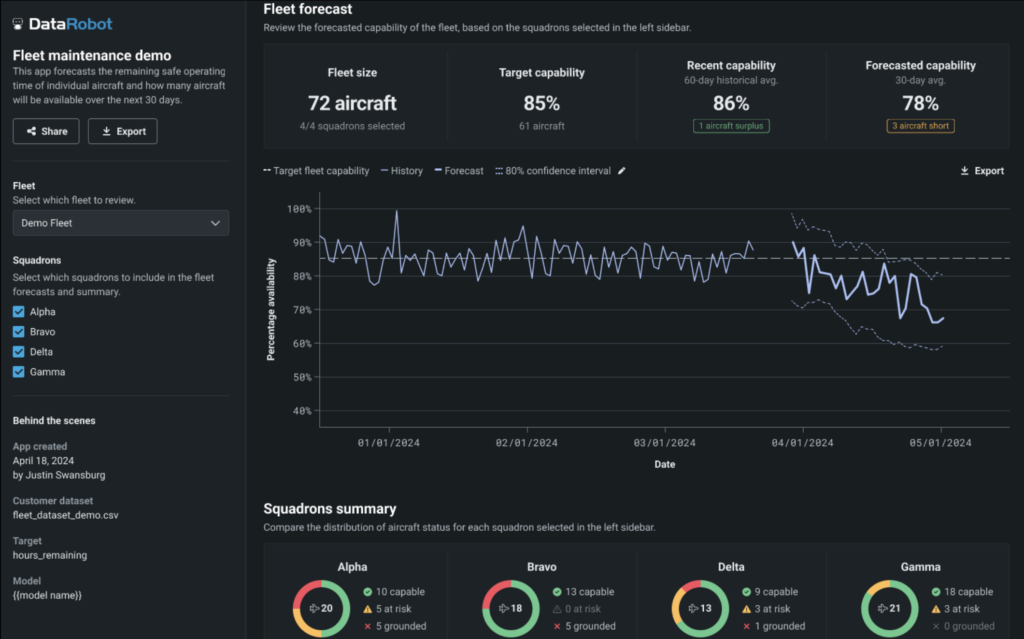
Collaborative AI application library
Disconnected workflows and scattered resources can bring AI deployment to a crawl, stalling progress. DataRobot’s customizable frameworks, hosted on GitHub, help teams establish a shared library of AI applications to:
- Start with a foundational framework.
- Adapt it to organizational requirements.
- Share it across data science, app development, and business teams.
These organization-specific customizations empower teams to deploy faster, enhance security, and foster seamless collaboration across the organization.
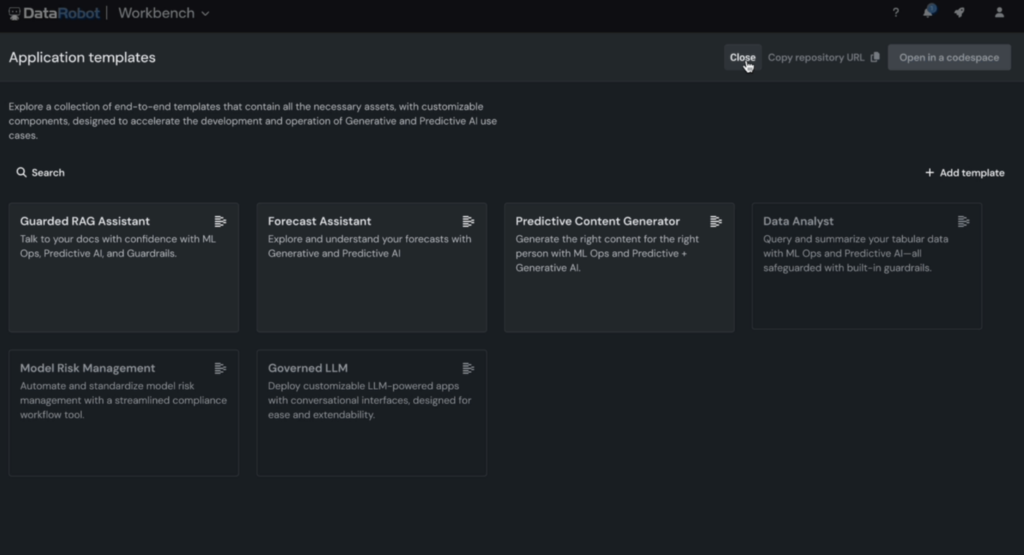
How to streamline fragmented workflows for scalable AI
Creating user-friendly AI interfaces that integrate seamlessly into business workflows is often a slow, complex process. Custom development and integration challenges force teams to start from a blank slate, leading to inefficiencies and delays. Simplifying app development, hosting, and prototyping can accelerate delivery and enable faster integration into business workflows.
AI App Workshop
Setting up local environments and generating Docker images often creates bottlenecks. Managing dependencies, configuring settings, and ensuring compatibility across systems are time-consuming, manual tasks prone to errors and delays.
DataRobot Codespaces now allow you to build code-first AI applications for your models using frameworks like Streamlit and Flask, simplifying development and enabling quick creation and deployment of custom generative AI app interfaces.
The new embedded Codespace support enhances this process by allowing you to easily develop, upload, test, and organize interfaces within a streamlined file system, eliminating common setup challenges.
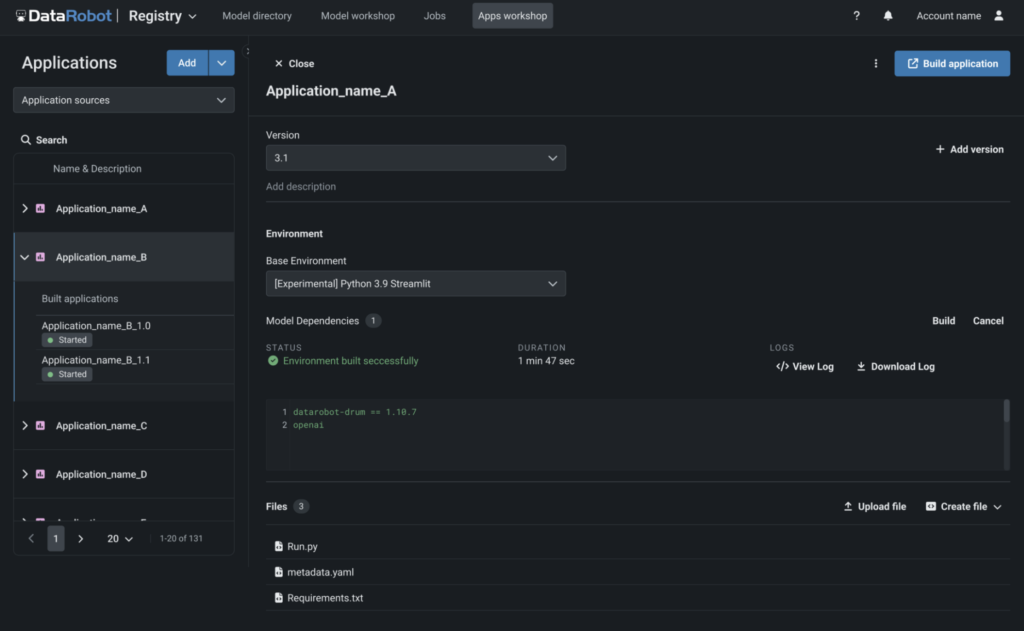
Q&A App
Another new DataRobot feature enables you to quickly create chat applications to prototype, test, and red-team generative AI models. With a simple, pre-built GUI, you can evaluate model performance, gather feedback efficiently, and collaborate with business stakeholders to refine your approach.
This streamlined approach accelerates early development and validation, while its flexibility allows you to customize or replace components as priorities evolve.
Adding custom metrics and conducting stress-testing ensures the application meets organizational needs, builds trust in its responses, and is ready for seamless production deployment.
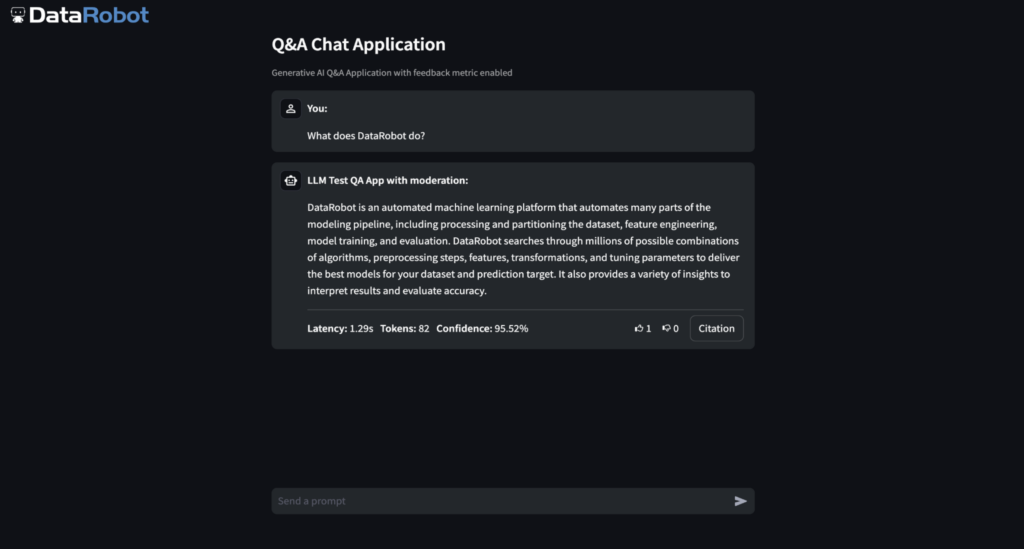
What’s holding back scalable AI applications?
Delivering scalable, trustworthy AI applications requires cohesion across workflows, tools, and teams. Without streamlined provisioning, standardization, and integration, delays and inefficiencies stall progress and stifle innovation.
The right tools, however, unify processes, reduce errors, and align outcomes with business needs.
Declarative API framework
DataRobot’s Declarative API Framework simplifies the development of scalable, repeatable AI applications for generative and predictive use cases, enabling teams to replicate work, save pipelines, and deliver solutions faster.
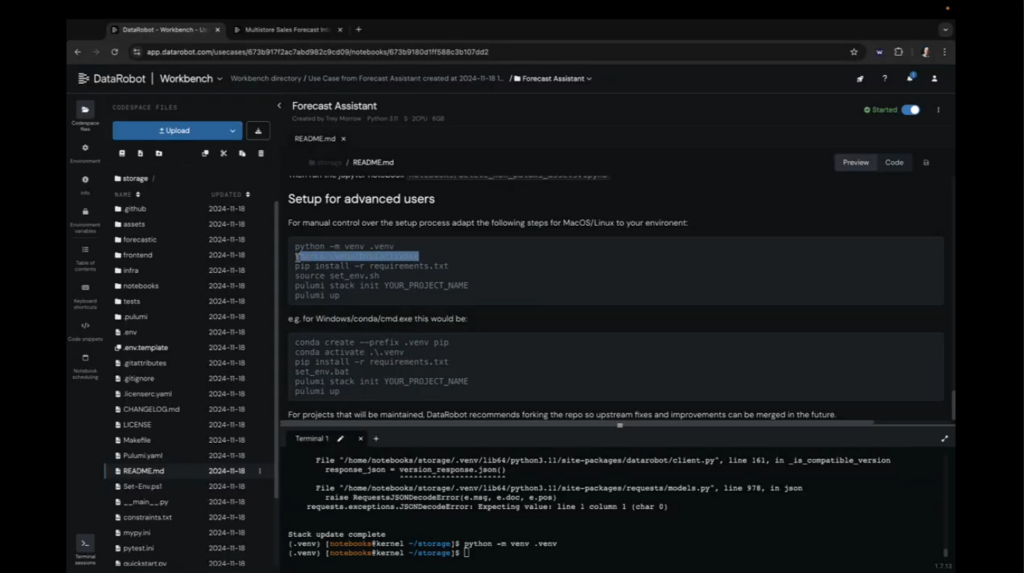
One-click SAP ecosystem embedding
Integrating AI models into existing ecosystems presents multiple challenges, including compatibility issues, siloed data, and complex configurations. DataRobot’s one-click integration with SAP Datasphere and AI Core simplifies this process by enabling you to:
- Seamlessly connect with minimal effort.
- Specify SAP credentials and compute resources.
- Bring models closer to your data for faster, more efficient scoring.
- Monitor deployments directly within DataRobot.
This integration minimizes latency, streamlines workflows, and enhances scalability, allowing your AI solutions to operate seamlessly at an enterprise scale.
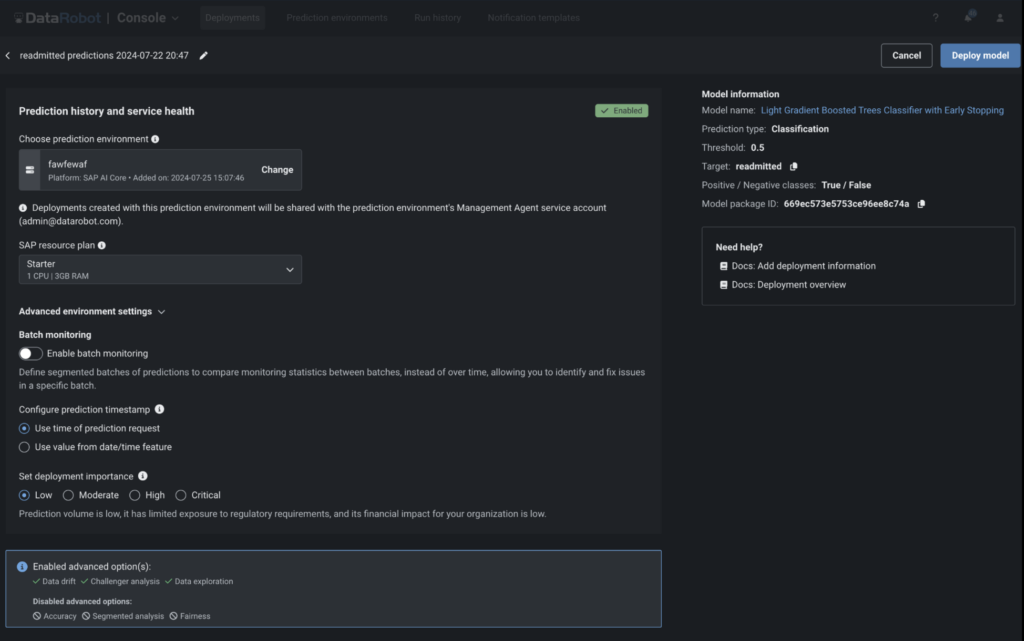
Transform your workflows with adaptable AI
Integrating AI shouldn’t disrupt your workflows—it should enhance them.
Imagine AI that adapts to your business: flexible, customizable, and seamlessly deployable. With the right tools, you can overcome challenges, deliver value faster, and ensure AI becomes an enabler, not an obstacle.
As you evaluate AI for your organization, the right AI apps and agents can help you focus on what truly matters. Explore what’s possible with AI apps that help you achieve enterprise AI at scale.


